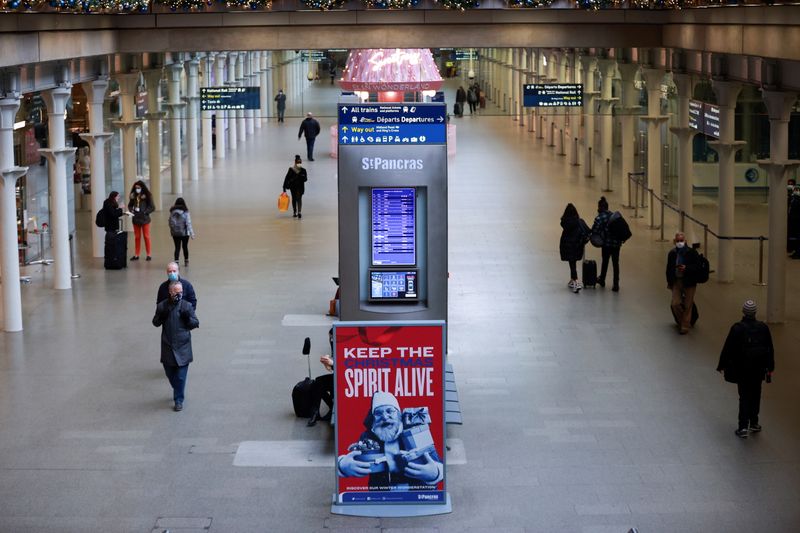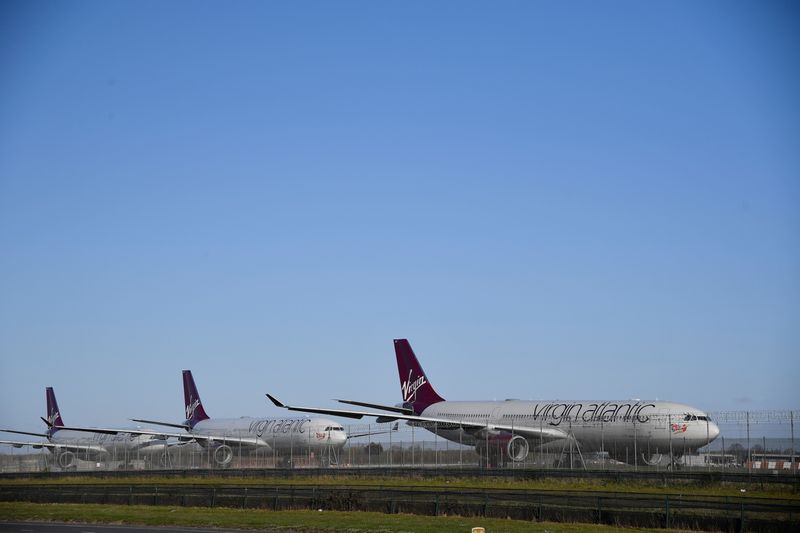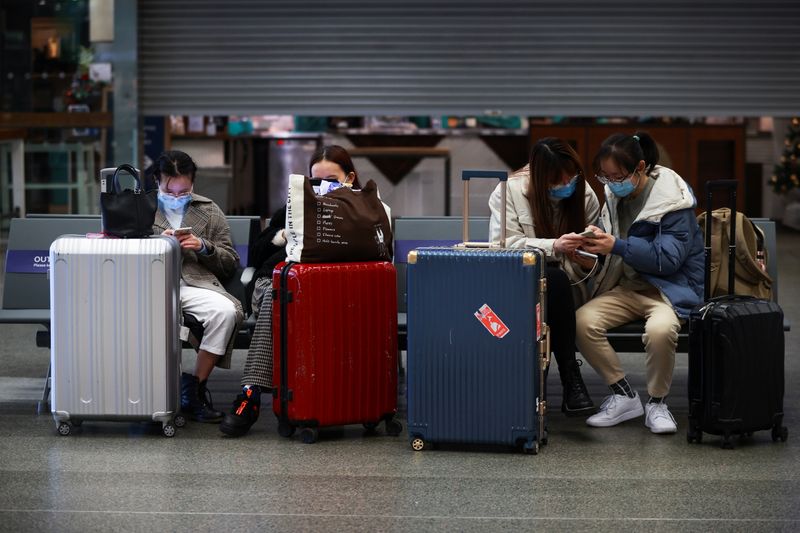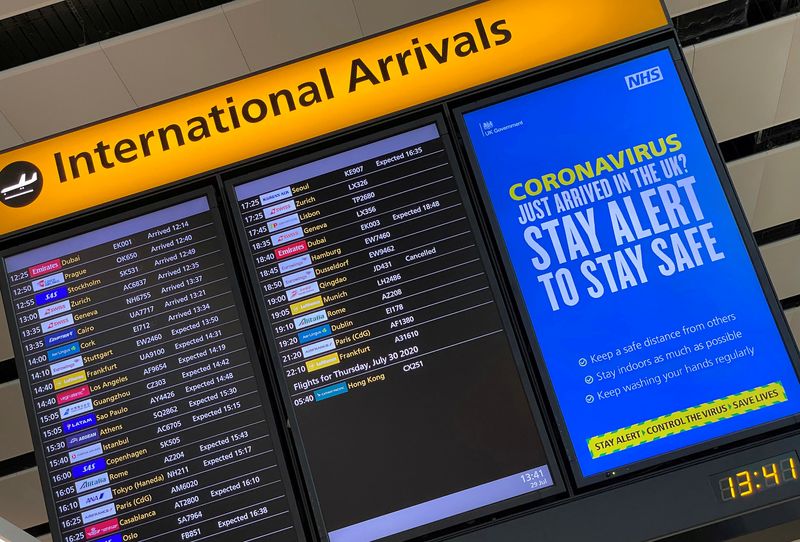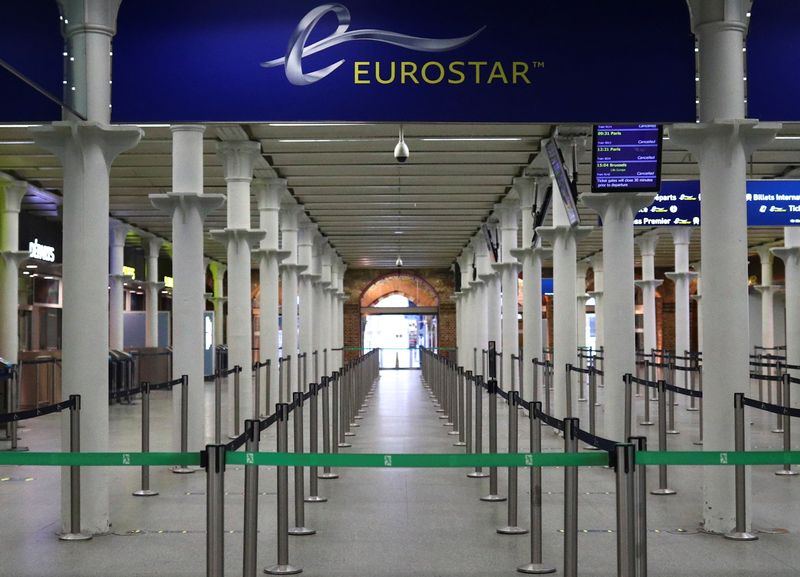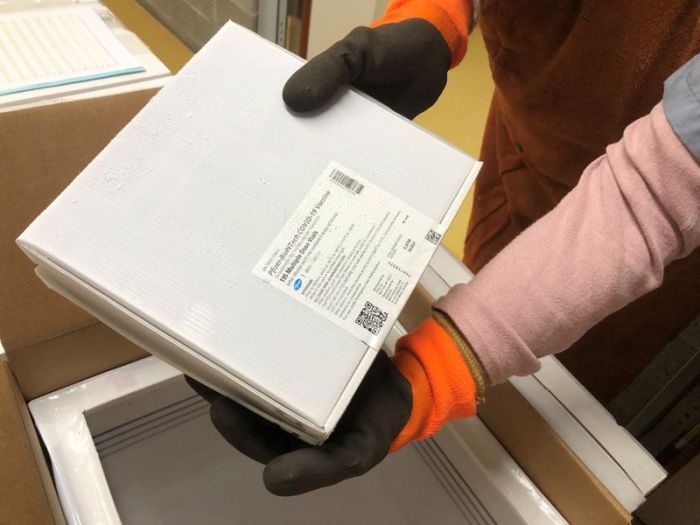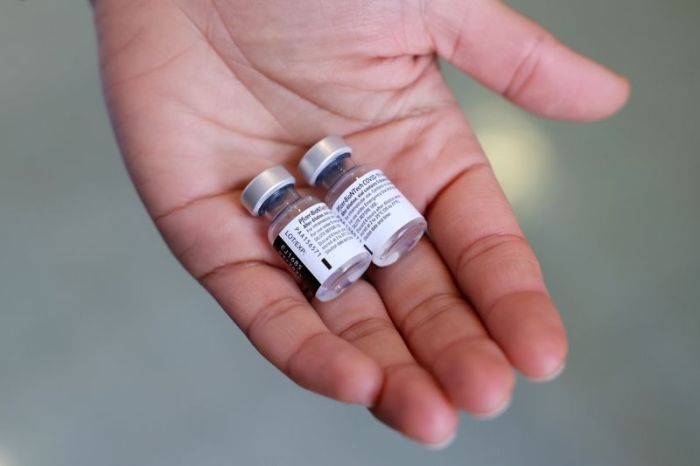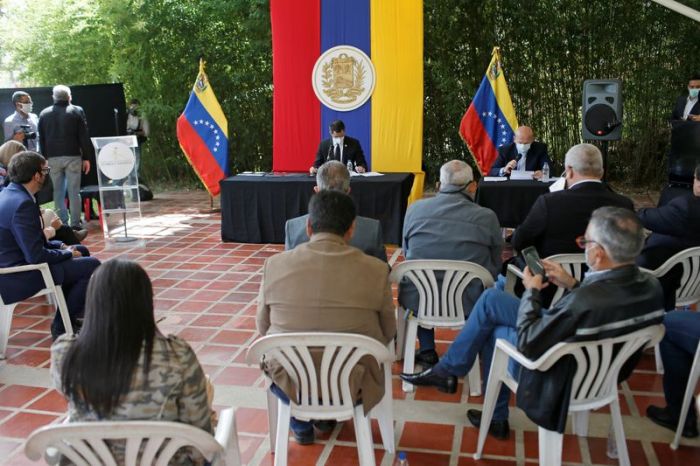DOVER, England (Reuters) – Countries across the globe shut their borders to Britain on Monday due to fears about a highly infectious new coronavirus strain, causing travel chaos and raising the prospect of food shortages days before Britain is set to leave the European Union.
India, Pakistan, Poland, Spain, Switzerland, Sweden, Russia, Jordan and Hong Kong suspended travel for Britons after Prime Minister Boris Johnson said a mutated variant of the virus had been identified in the country. Saudi Arabia, Kuwait and Oman closed their borders completely.
Several other nations blocked travel from Britain over the weekend, including France, Germany, Italy, the Netherlands, Austria, Ireland, Belgium and Canada – although experts said the strain may already be circulating in countries with less advanced detection methods than the United Kingdom.
France shut its border to arrivals of people and trucks from Britain, closing off one of the most important trade arteries with mainland Europe.
Trucks backed up for miles on the highway leading to the port of Dover, Britain’s main trade gateway with the continent and thousands of Europe-bound drivers were stranded.
“My chances of going home for Christmas are going down. It’s stupid and I am nervous and unhappy about that,” said Stanislaw Olbrich, a 55-year-old Polish trucker stuck 24 miles (40 km) north of Dover.
The discovery of the new strain, just months before vaccines are expected to be widely available, sowed new panic in a pandemic that has killed about 1.7 million people worldwide and more than 67,000 in Britain.
New York Governor Andrew Cuomo urged the U.S. government to take steps to prevent the variant entering the United States, which has been worst hit by COVID-19 with almost 318,000 deaths.
“It’s high time the federal government takes swift action, because today that variant is getting on a plane and landing in JFK, and all it takes is one person,” he said.
British Airways agreed to allow only passengers who test negative for the coronavirus to fly to New York’s John F. Kennedy International Airport, he said.
U.S. Assistant Health Secretary Brett Giroir said nothing had yet been decided on any travel ban.
European officials met via video link to coordinate their response to the new strain. The EU is on course to start vaccinations within a week after its medicines regulator approved the use of a shot from Pfizer and BioNTech on Monday.
Experts said there was no evidence that vaccines would not protect against this variant but they were working around the clock to determine whether the mutations would affect how well the shots guarded against infection.
The UK government’s chief scientific adviser, Patrick Vallance, said tighter restrictions on public life in Britain were likely.
“I will say that the evidence on this virus is it spreads easily, it’s more transmissible, we absolutely need to make sure we’ve got the right level of restrictions in place,” Vallance told a news conference hosted by Johnson.
“And I think it’s likely therefore that measures need to need to be increased in some places in due course, not reduced.”
FOOD SHORTAGES WARNING
As well as the traffic jams around British ports, trucks were also backed up in Calais and other French ports. Although they are allowed to cross from France to Britain, the logistics chain that keeps the goods moving has been thrown out of kilter.
“No driver wants to deliver to the UK now, so the UK is going to see its freight supply dry up,” France’s FNTR national road-haulage federation said.
British supermarket chains Sainsbury’s and <Tesco TSCO.L> said shortages would start to appear within days if transport ties were not quickly restored.
“If nothing changes, we will start to see gaps over the coming days on lettuce, some salad leaves, cauliflowers, broccoli and citrus fruit – all of which are imported from the continent at this time of year,” Sainsbury’s said.
The global alarm was reflected in financial markets.
European shares slumped, with travel and leisure stocks bearing the brunt. British Airways-owner IAG and easyJet dropped about 7%, while Air France KLM lost around 3%.
Wall Street also felt the pain, with losses across the board. The S&P 1500 airlines index slid 3%, while leading cruise operators fell about 4%.
The British pound tumbled 2.5% against the dollar at one point before paring some of the losses, while the yield on two-year UK government bonds hit a record low.
CHRISTMAS CLAMPDOWN
Johnson cancelled Christmas plans for millions of British people on Saturday due to the more infectious coronavirus strain, though he said there was no evidence that it was either more lethal or caused a more severe illness.
The new variant and restrictions in Britain compound the chaos as the country prepares to finally part ways with the European Union, possibly without a trade deal, when the Brexit transition period at 2300 GMT on Dec. 31.
Talks on a Brexit trade deal continued on Monday but Johnson said there were still problems and the position was unchanged.
The new variant, which scientists said was 40%-70% more transmissible, is rapidly become the dominant strain in parts of southern England, including London.
Experts tracking it said there was some early but unconfirmed evidence that it could transmit as readily among children as among adults, unlike previous dominant strains.
Cases of the new strain have also been in detected in some other countries, including Denmark, Italy and the Netherlands.
Australia said two people who travelled from Britain to New South Wales state were carrying the mutated virus. It axed dozens of domestic flights while New South Wales locked down more than 250,000 people.
Some scientists said the prevalence discovered in Britain might be down to more thorough detection.
“I think we will find in the coming days that a lot of other countries will find it,” Marc Van Ranst, a virologist from the Rega Institute for Medical Research in Belgium, told broadcaster VRT.
(Additional reporting by Kate Kelland, Toby Melville and James Davey in London, Laurence Frost in Paris, Philip Blenkinsop in Brussels, Sayantani Ghosh in Singapore, Frank McGurty in New York, Josh Smith and Sangmi Cha in Seoul, Renju Jose in Sydney, Shilpa Jamkhandikar in Mumbai and Farah Master in Hong Kong; Writing by Guy Faulconbridge and Pravin Char; Editing by Angus MacSwan)

